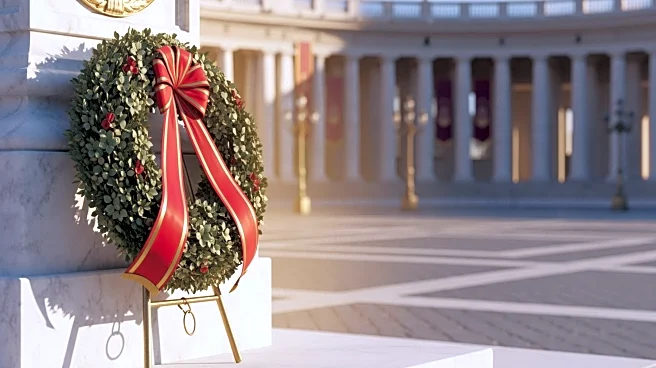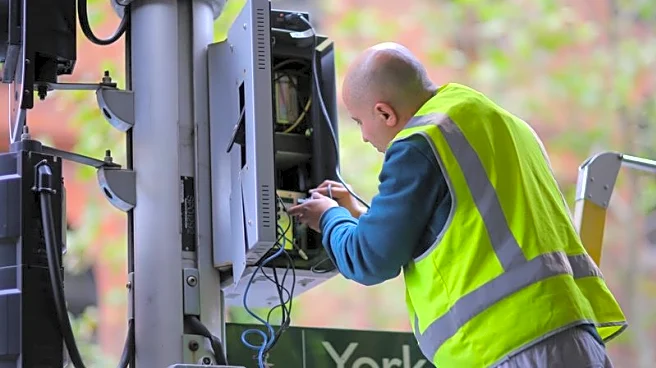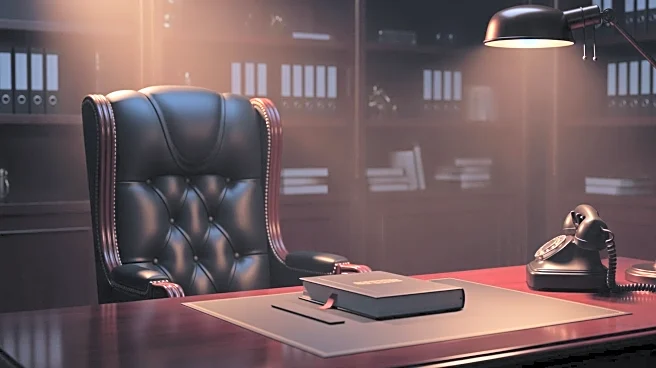What's Happening?
King Charles III led a two-minute silence at the Cenotaph in London during the National Service of Remembrance, commemorating those who died in conflict. The event, marking the 80th anniversary of the end of World War Two, saw participation from senior
royals, including the Prince of Wales and the Duke of Edinburgh, as well as political leaders like Prime Minister Sir Keir Starmer. The ceremony included a wreath-laying by King Charles and was attended by thousands, including World War Two veterans and former UK prime ministers. The service is observed on the Sunday nearest to Armistice Day, which marks the end of World War One.
Why It's Important?
The Remembrance Sunday ceremony serves as a poignant reminder of the sacrifices made by armed forces in past conflicts, highlighting the importance of honoring veterans and preserving historical memory. It underscores the role of national leaders and the royal family in maintaining traditions that foster unity and respect for those who served. The event also reflects on the freedoms secured through these sacrifices, reinforcing the values of courage and service in the national consciousness. The presence of surviving veterans adds emotional weight to the ceremony, emphasizing the dwindling number of those who directly experienced the wars.
What's Next?
Future Remembrance Sunday events will continue to honor veterans and those who served in conflicts, with potential adjustments to accommodate the decreasing number of surviving World War Two veterans. The ceremony's significance may evolve, focusing more on educating younger generations about historical conflicts and their impact. Political leaders and the royal family are likely to maintain their roles in these commemorations, ensuring the tradition remains a central part of national observance.
Beyond the Headlines
The ceremony highlights broader themes of national identity and collective memory, raising questions about how societies remember and honor their past. It also touches on the ethical responsibility to support veterans and their families, addressing issues such as veteran care and mental health. The event may inspire discussions on the role of historical education in fostering peace and understanding among nations.
















